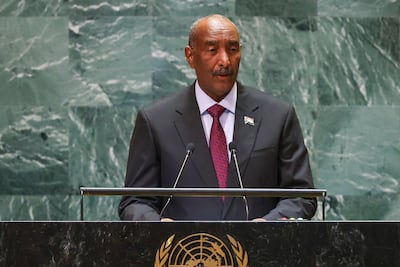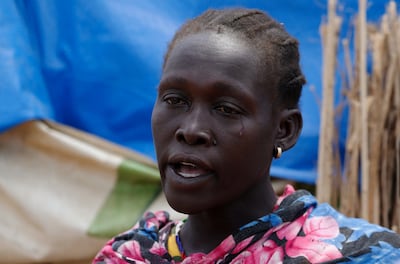Sudan's army has made a series of vital battlefield gains since it launched a major offensive last week against the paramilitary Rapid Support Forces (RSF), taking an important bridge over the Nile and advancing swiftly elsewhere in the Sudanese capital.
According to statements by senior officers and videos shared online, the army has secured Al Halfayah bridge and is now fighting its way towards Shambat district, after fierce fighting at the weekend. The bridge connects Omdurman with Bahri, two of the three cities that make up the greater Khartoum area and which are connected by bridges on the White and Blue Niles. Khartoum itself is the third city.
Residents said fighting between the army and the RSF was continuing in the area on Monday. Videos shared online appeared to show army troops celebrating battlefield advances. Explosions and machinegun fire could be heard in some of the footage. The videos could not be independently verified.
A statement by Khartoum's emergency services spoke of terrified civilians in areas where the “unprecedently heavy” fighting is taking place. It said hundreds of residents were preparing to flee their homes to escape the fighting and that at least six people were killed and 10 others injured in an air strike attributed to the army. It gave no other details.

“It will be a significant victory if the army captures Shambat,” said Sudanese analyst Osman Al Mirghani. “If it happens, that will give the army virtual control over the whole of Bahri.”
Another Sudanese analyst, Hatim Dirdiri, echoed that assessment. “Halfaya has strategic importance as it controls some of the most essential roads and bridges in and out of Bahri," he said. "The army can use this victory to press on to recapture some of the capital's most important sites."
Elsewhere in the capital, the military said it captured Al Mugran district, where the Blue and White Niles meet, at the weekend. The capture of Al Mugran gives the army an important foothold in Khartoum not far from the Nile-side presidential palace and the armed forces' headquarters.
“Should the army prove successful in holding on to the two Niles region, it could potentially connect the headquarters of the armoured and engineers’ corps, two of its strongest military bases,” said Mr Dirdiri. That would give the army the opportunity to retake the presidential palace and lift the partial siege of the nearby armed forces' headquarters, he explained.

The RSF captured most of the greater Khartoum area in the early days of the war, which broke out in April 2023. But the army has held on to the armed forces' headquarters and a string of heavily fortified military bases, while the RSF controls the presidential palace and the city's only international airport.
The RSF has also captured most of the western Darfur region, parts of Kordofan to the south-west and Al Jazira and Sinnar, rich agricultural regions south of the capital. Building on recent gains in Omdurman, the army's latest offensive, which began on Thursday, is partially designed to lift the morale of its men and boost its image after a string of defeats at the hands of the RSF in the west and south of the capital, said Mr Al Mirghani. “Tactically, taking back the capital will also improve the army's supply lines to the West and south.”
The conflict between the army and the RSF has killed tens of thousands of people and created the world's biggest displacement crisis, forcing more than seven million to flee their homes in addition to another three million who had already been displaced by previous bouts of civil war in the vast Afro-Arab nation.
About 25 million people – more than half the population – are also facing acute hunger. Famine was declared in August in a sprawling camp for the displaced in Darfur and the UN has identified at least 10 other locations in Sudan that could follow without prompt humanitarian assistance.
The war broke out when months of tension between the army and the RSF over their mandate and role in a hoped-for democratic Sudan boiled over into fighting. Army chief Gen Abdel Fattah Al Burhan and RSF commander Gen Mohamed Dagalo claim to be fighting to restore democratic rule. The armed forces and RSF are both accused of war crimes and crimes against humanity.

A senior adviser to Gen Dagalo, Mohamed Al Mukhtar Al Nour, told media on Sunday night that the paramilitary was no longer willing to engage in negotiations with the army to end the war. He declared that, in light of the latest fighting, the RSF was left with no choice but to defeat the army.
It was not immediately clear if Mr Al Nour's comments constituted a shift in the position of the RSF, which has consistently said it is ready to negotiate a peaceful settlement, or were made out of frustration. The army has long insisted it will only enter negotiations with the RSF if the paramilitary first pulls out from the cities and towns it has captured.
The army has heavily relied on air strikes and artillery in its fight against the RSF, an agile force estimated to number about 100,000 fighters. The army has been accused of killing thousands of civilians in air strikes on RSF positions in densely populated areas.
Al Shafie Ahmed contributed to this report from Kampala, Uganda

